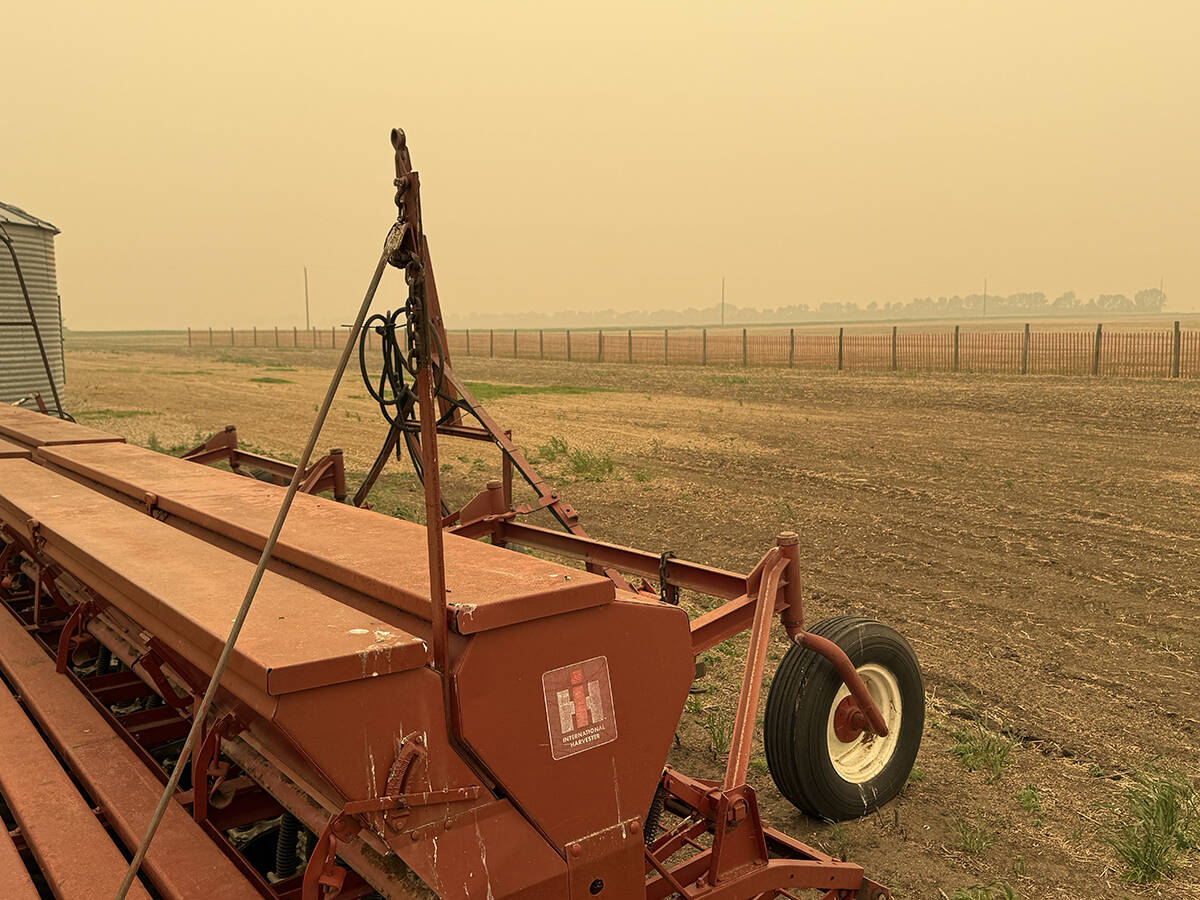BASHAW, Alta. – One year ago it would be difficult to find anyone in Bashaw who had heard of the game of bunnock. Today, officials with the local agricultural society are hoping bunnock will help lead their town’s economic diversification.
Bashaw used to be home to one of the few cheese plants on the Prairies, plus a long list of cattle shows during the summer. Both are gone now and officials with the Bashaw Agricultural Society wanted something unique to bring people to the community.
“We’ve got to do something different here,” said Jan Wells, who helped organize the first annual bunnock tournament in Bashaw Aug. 28-29.
Read Also

Wildfires have unexpected upside this year
One farmer feels smoke from nearby wildfires shrouded the July skies and protected his crop from the sun’s burning rays, resulting in more seeds per pod and more pods per plant.
“You’ve got to have events to have income to pay the utilities.”
The game of tossing the ankle bones of horses has been a well-kept secret near Macklin, Sask., for more than 100 years. It is believed to have originated with German soldiers in Russia who had time on their hands and little money for entertainment. The game was brought to Canada with their families that settled near Macklin.
Rows of ankle bones are set up 10 metres apart and the teams try to knock down the opposing team’s bones with throwing bones. The world bunnock championship is held in Macklin, Sask., every August long weekend. This year 288 teams attended the Macklin tournament.
Thirty-six teams played under the covered cow barn in Bashaw, but Wells is hoping that number will double as more people hear about the game.
“Already people have asked to enter for next year,” she said.
Ron Shantz, also with the agricultural society, hopes visitors with the tournament will bring in much needed “foreign currency” to the local community.
“The impact to the town will be unbelievable,” said Shantz who added that bunnock is just one of the diversification ideas to help use Bashaw’s five-acre fairgrounds on the edge of town.
A rodeo, mothballed for several years, is now a two-day event. The society hopes a new youth rodeo will bring people to the community. It has also initiated a festival of stars, which is a music talent show, a bluegrass festival and an old-time dance competition to attract people to the community.
“It all helps keep the ag society going,” said Shantz who added they want to have a variety of events to attract people to the central Alberta town.
The seed for the bunnock tournament was sown by Wells’ daughter, who raved about a game of bunnock she had played with friends. Like most people, Wells’ initial reaction was “what’s that?”
Wells searched the internet and found Joe Gartner’s name. He grew up in Cactus Lake, just south of Macklin.
While working at a horse packing plant in Edmonton, Gartner turned thousands of horse bones into bunnock games. When the plant shut down, so did his source of bones.
Now Gartner makes the bones from a high-impact poly.
“I think we’ve got the No. 1 product and I know we can meet the demand,” said Gartner, who estimated he was related to about half the people at the bunnock tournament in Bashaw.














